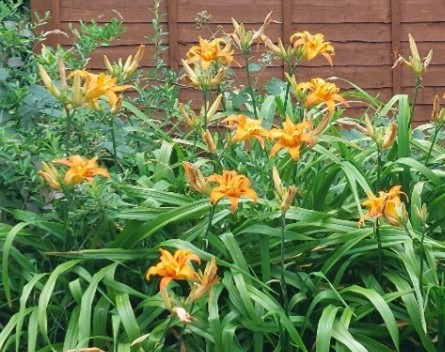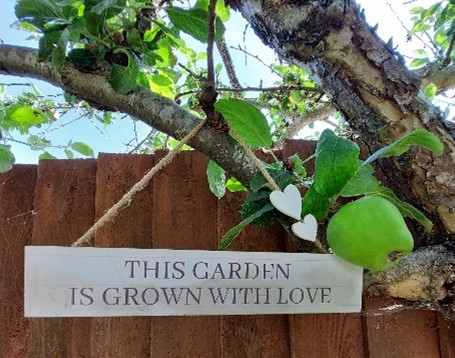Rooted in Dialogue: Cultivating Professional Conversations
By Angela Thomas, Practice Tutor, September 2024
 I write this blog with a vista of my well-tended garden at the end of a productive summer. The hydrangea are still in full bloom, the apple tree bountiful, and the pansies reluctant to drop their purple, velvety petals. It is rather satisfying to observe and it provokes a period of reflection on the passing season and the new one ahead.
I write this blog with a vista of my well-tended garden at the end of a productive summer. The hydrangea are still in full bloom, the apple tree bountiful, and the pansies reluctant to drop their purple, velvety petals. It is rather satisfying to observe and it provokes a period of reflection on the passing season and the new one ahead.
What contributes to a successful crop of student teachers receiving their Qualified Teacher Status? How do we cultivate the ground for our new plantlets and ensure they are sufficiently fed and watered throughout their development? With the Open University PGCE Wales, combined with the Praxis Centre for Research and Innovation, I’ve had the opportunity to delve into the world of professional conversations.
 In planning a professional conversation, we are planting the seeds of curiosity so that knowledge can grow.
In planning a professional conversation, we are planting the seeds of curiosity so that knowledge can grow.
Time to prepare beforehand is an often overlooked, yet vital component of professional conversations. Adequate preparation allows Mentors and Practice Tutors to gather their thoughts, review relevant materials, and formulate questions or points for discussion. This preparation ensures that the conversation is focused, productive, and respectful of everyone’s time. It also demonstrates a commitment to the process and a willingness to engage meaningfully.
At the heart of any professional conversation lies supported reflection. This is crucial as it allows student teachers to critically analyse their classroom experiences, identify strengths and areas to develop, and unearth a deeper understanding of their pedagogical practice. Supported reflection is not just about looking for areas of development; it’s about fostering a mindset of continuous learning and growth. By providing a safe space for reflection, Mentors and Practice Tutors can help student teachers to articulate their thoughts, feelings, and insights, leading to meaningful personal and professional development.
In nurturing our student teachers to reflect on their practice, we provide the trellis for climbing tendrils to attach and know that with time, care and attention, the core becomes stronger and growth occurs.
 Questions that deepen thinking are essential for advancing conversations and encouraging critical analysis. These questions can challenge individuals to think beyond the surface and explore underlying assumptions, implications, and possibilities.
Questions that deepen thinking are essential for advancing conversations and encouraging critical analysis. These questions can challenge individuals to think beyond the surface and explore underlying assumptions, implications, and possibilities.
By asking thoughtful questions, Mentors and Practice Tutors facilitate a richer, more engaging conversation for student teachers to nourish their budding, autonomous practice.
The process of collaborative target-setting involves working together to establish clear, achievable goals that are aligned with the student teacher’s aspirations and the Professional Standards for Teaching and Leadership.
Identifying the blooms to nurture and weeds to remove, supports healthy growth.
 When further exploring the essence of a professional conversation, it is important to base discussions on facts, whilst appreciating the context that surrounds them. A professional conversation should identify next steps and lead to change. This focus on change and improvement underscores the transformative potential of professional conversations. It reinforces the idea that these dialogues are not just about self-reflection, but about driving meaningful, positive change.
When further exploring the essence of a professional conversation, it is important to base discussions on facts, whilst appreciating the context that surrounds them. A professional conversation should identify next steps and lead to change. This focus on change and improvement underscores the transformative potential of professional conversations. It reinforces the idea that these dialogues are not just about self-reflection, but about driving meaningful, positive change.
Every garden is unique, has its own micro-climate, has its own fertiliser needs and is overseen by the watchful gardener; each garden will yield different crops.
Professional conversations appear to be a powerful tool for development and change, not only for the student teacher, but for those facilitating the discussions. Yet, just like a garden, learning requires ongoing effort and maintenance to keep growing and blooming. And, if the flower doesn't bloom? Maybe we should look to modify the environment in which we are expecting it to grow.
To read the full research report click here.
Request your prospectus
Explore our qualifications and courses by requesting one of our prospectuses today.